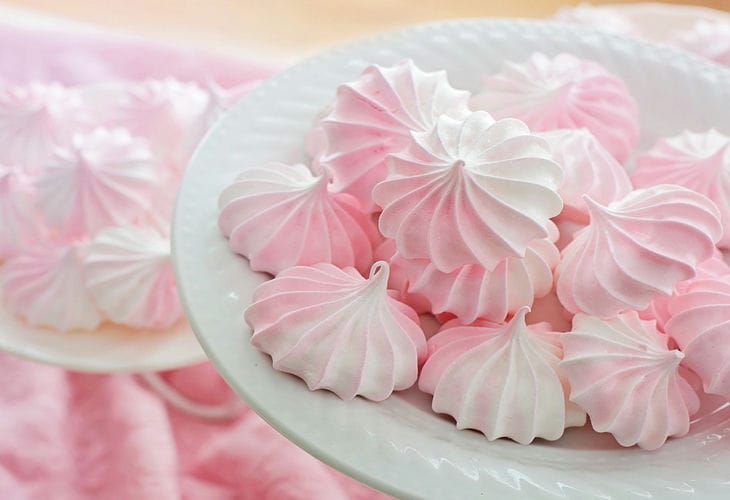Why Meringue Turns into a Puddle: Chefs Reveal the Secret They Hide from Newbies
You spent an hour whipping egg whites, but the meringue spread out on the baking sheet like pancakes?
It is not fate that is to blame, but three factors: moisture, sugar and haste.
Start with the bowl. The bowl and beaters should be perfectly dry - wipe them with a paper towel with lemon juice.
Fat is the enemy of meringues: even traces of yolk in the whites will prevent them from whipping. Separate the eggs cold (so the yolk will not break), but warm the whites to room temperature before whipping.
Add sugar gradually: 1 tbsp every 30 seconds. If you add it all at once, the crystals will not have time to dissolve, and the meringue will crunch like snow.

Whip for 10-12 minutes until stiff peaks form. The mixture should stay on the whisk without dripping.
The secret to a glossy surface is a pinch of citric acid or vinegar. They stabilize the whites and prevent the meringues from "crying" in the oven.
Step by step preparation
- Preheat oven to 100°C, line a baking sheet with parchment paper.
- Separate the whites from the yolks, making sure there is no fat in them.
- Beat the egg whites on medium speed for 2 minutes until foamy.
- Add sugar one spoon at a time, increasing the mixer speed.
- Add citric acid and beat for another 5 minutes until glossy.
- Place the mixture into a pastry bag and form peaks.
- Place in the oven, immediately reduce the temperature to 80°C.
- Dry for 1.5–2 hours. Do not open the door!
- The finished meringues should easily come off the parchment.
The most common mistakes
Do not bake meringues in the rain. High humidity makes them stringy. If there is no other way, add 1 teaspoon of cornstarch to the whites.
Use parchment paper, not silicone. Silicone mats often leave a damp bottom.
Don't store ready meringues in the refrigerator. They will absorb odors and become damp.
For example, the first batch of meringue, whipped in a plastic bowl with fat on the walls, will definitely turn into an unpleasant liquid substance. But the second - in a dry glass bowl with citric acid - will hold its shape even after an hour in the oven.
